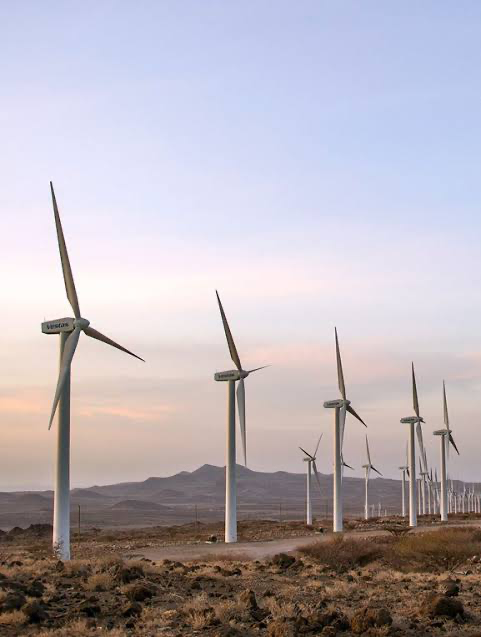In a bold move to rejuvenate its dormant wind energy sector, Nigeria, through the Renewable Energy Association of Nigeria (REAN), has initiated a pivotal partnership with the Global Wind Energy Council’s Nigerian branch, the Nigeria Wind Energy Council (NWEC). This collaboration, manifested in a recently signed Memorandum of Understanding (MoU), is set to catalyze the development and integration of wind energy into Nigeria’s broader energy strategy, aiming at achieving the nation’s ambitious just energy transition goals.
“This exciting collaboration marks a significant step forward in integrating wind energy into Nigeria’s energy mix…” REAN announced, highlighting the partnership’s potential to leverage wind power as a catalyst for sustainable economic growth, job creation, and a transition towards a more equitable energy future. The partnership’s primary focus will revolve around conducting research, promoting, advocating, and actualizing wind energy projects across Nigeria. This concerted effort aims not only to diversify the country’s energy portfolio but also to address the escalating energy demand driven by population growth and industrialization pressures.
A landmark moment for this initiative occurred during COP28, where a critical agreement to kickstart wind energy projects was signed, spotlighting Nigeria’s largest state by landmass as a focal point for development. This agreement, facilitated by the Energy Commission of Nigeria (ECN), GWEC, and the Niger State Government, and mediated by Bridge Synergy, an international consultancy firm, signifies a concrete step towards harnessing Nigeria’s wind energy potential.
Set for an initial duration of five years, with the option for extension, this collaboration underscores the recognized importance of wind energy in Nigeria’s quest for a sustainable and diversified energy mix. Despite the country’s vast potential for wind energy, highlighted by academic sources like Frontiers in Energy Research, Nigeria’s wind energy production remains minimal. The report urges a reevaluation of suitable sites for wind energy harvesting, given the acute energy demand propelled by the nation’s demographic and industrial expansion.
One of the stark reminders of the challenges facing Nigeria’s wind energy ambitions is the 10MW Katsina wind farm project. Initiated in 2005, the project has yet to reach completion, plagued by a series of setbacks and a dire lack of investment. This situation amplifies the necessity for renewed focus and resources towards realizing viable wind energy projects.
The REAN and GWEC partnership represents a beacon of hope for Nigeria’s wind energy sector. By mobilizing expertise, advocacy, and development efforts, this alliance aims to not only overcome the historical hurdles of wind energy projects like Katsina but also to pave the way for a future where wind power significantly contributes to Nigeria’s energy sustainability and security.



